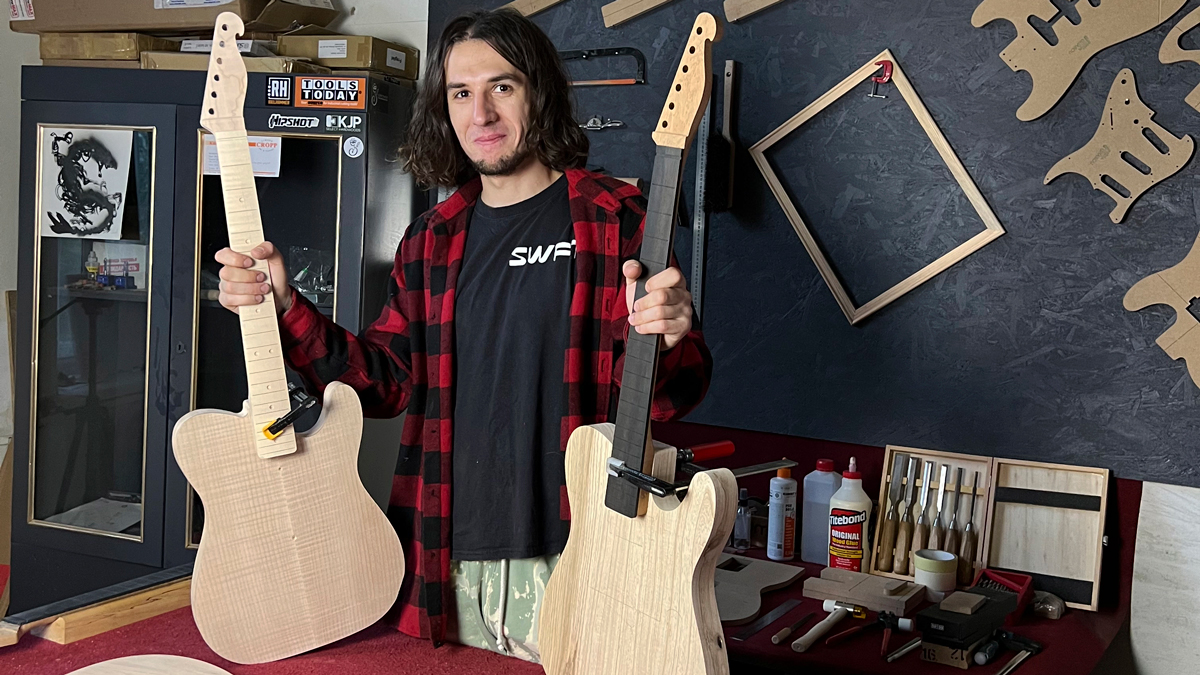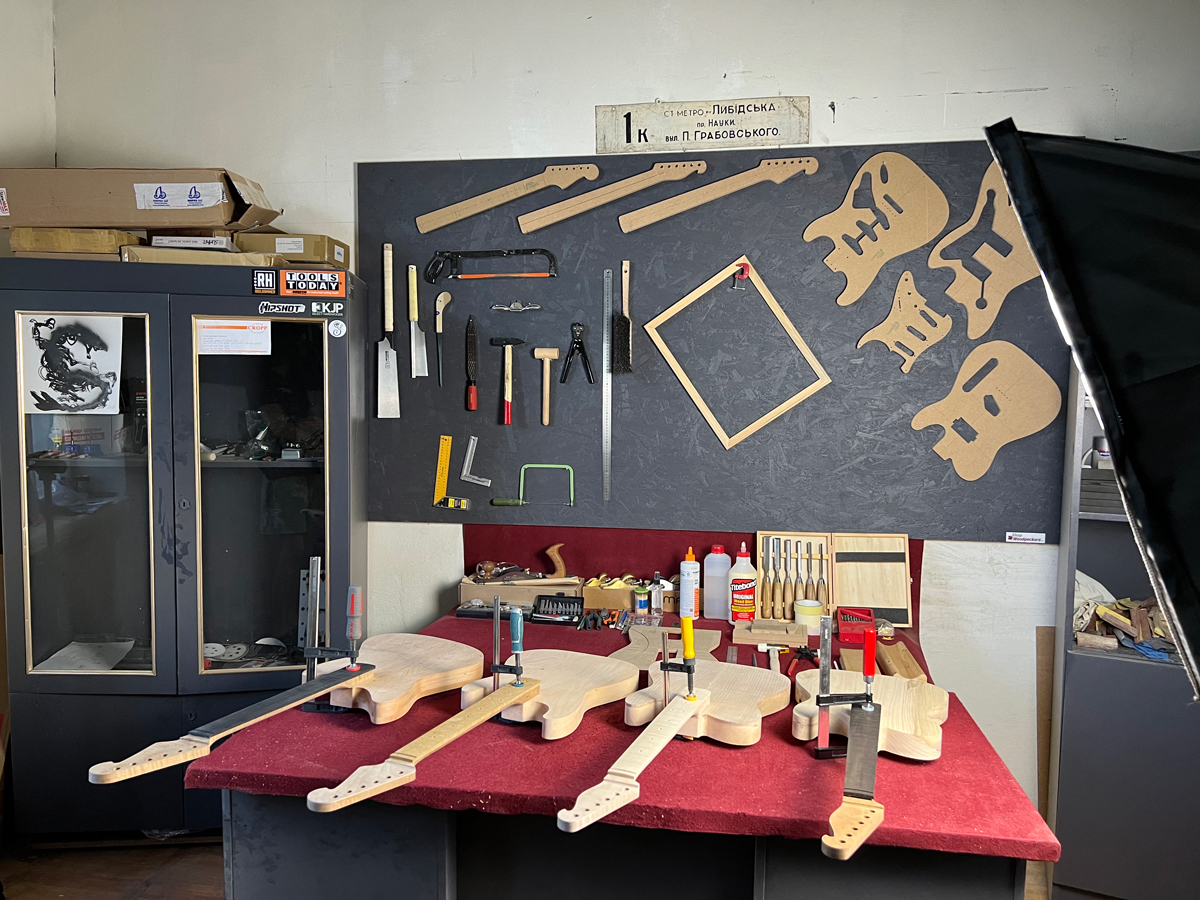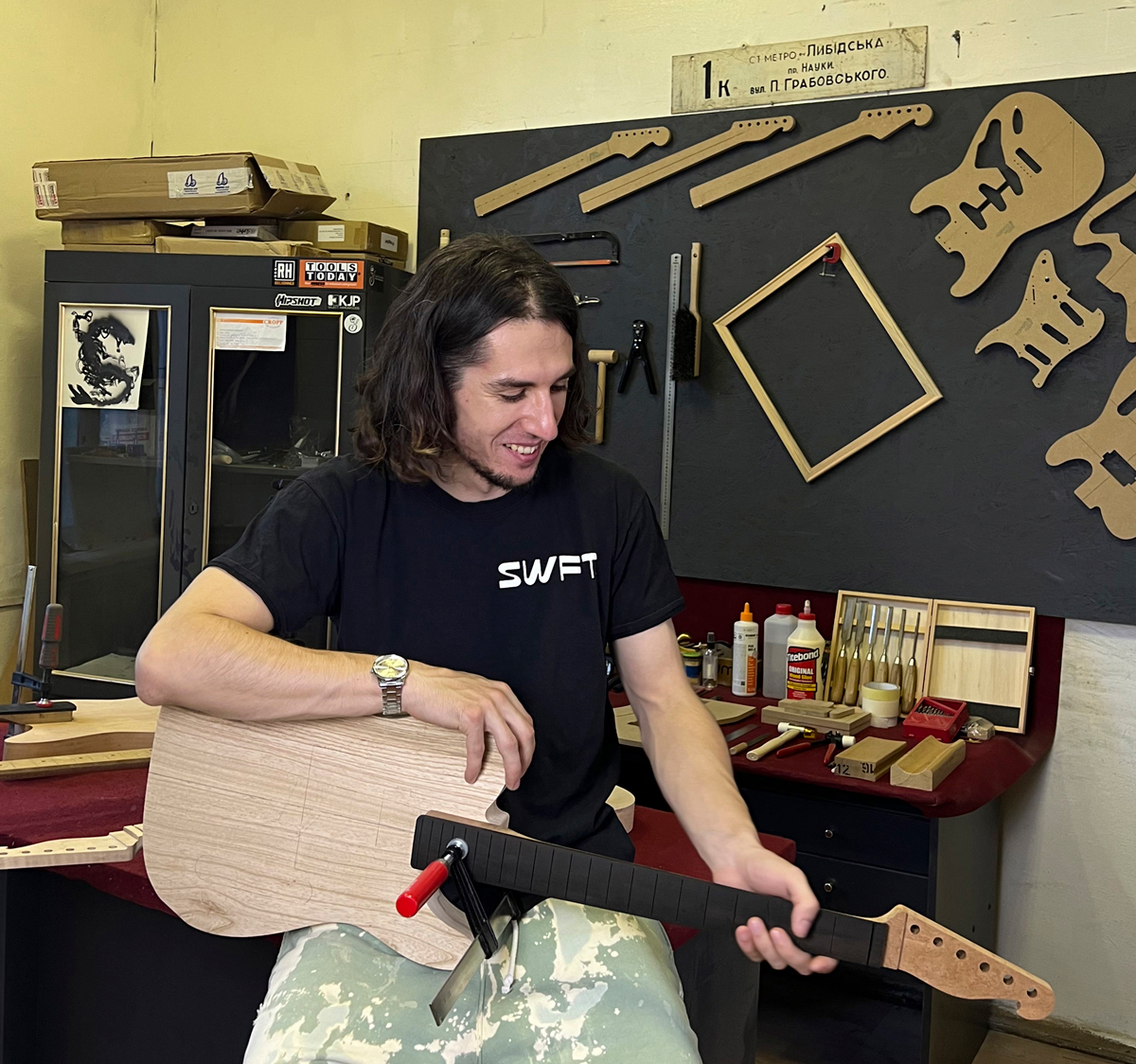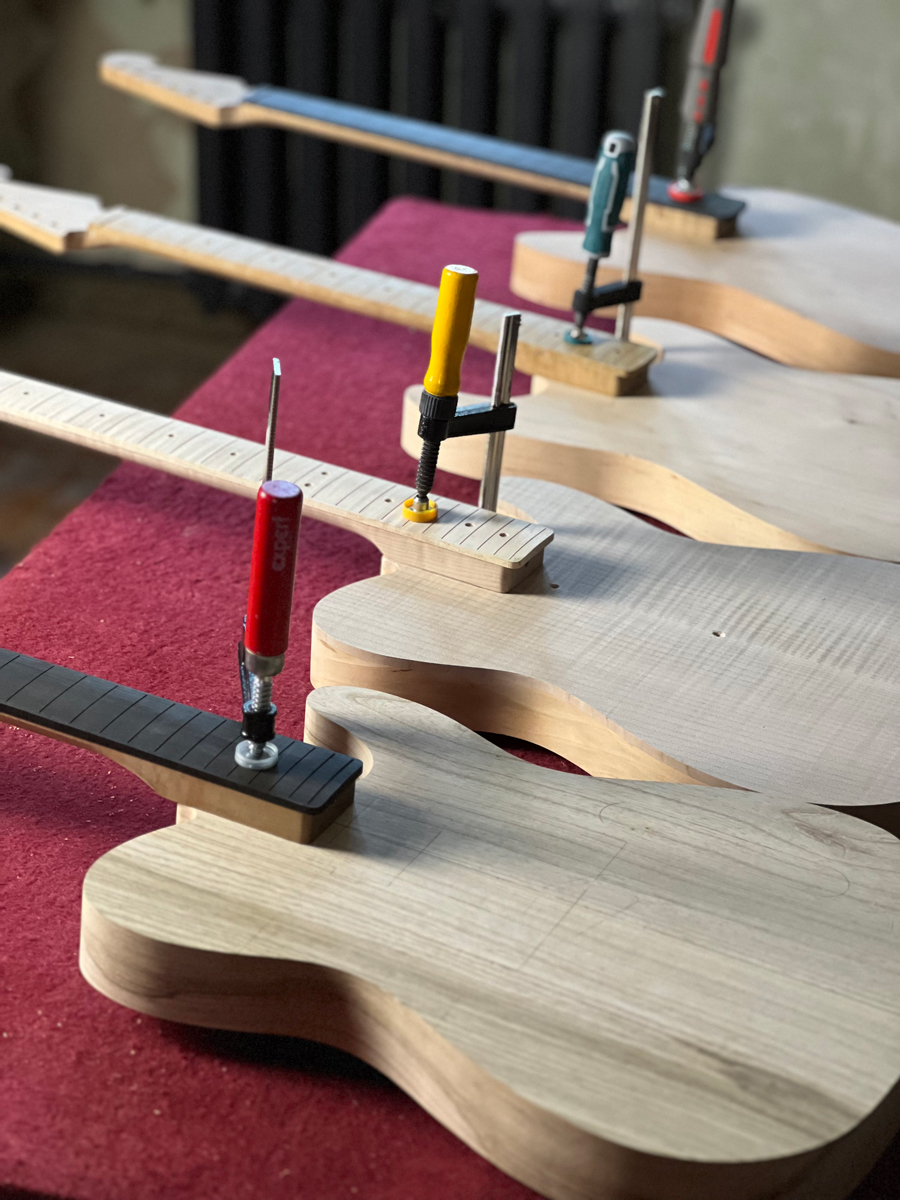Last year, this Ukrainian guitarist’s apartment was hit by a Russian airstrike. Now he’s launched his own guitar company to prove that “even in the most hopeless situations, one can fulfill one’s dream”
Named after the birds that flew over his ruined home, SWFT Guitars is the brainchild of Nikita Zhemerenko, who has received guidance from the likes of Ken Lawrence, Dean Zelinsky and Manson Guitar Works – and wants his guitars to someday help rebuild his home country

On February 24, 2022, Ukrainian guitarist Nikita Zhemerenko had his apartment ripped to shreds by a Russian airstrike. Yet his outlook on life, guitars, and music remains inspirational.
“I want to tell all the people who know my story that even in the most difficult situations, when it seems that everything is lost and there is nowhere else to move, you need to believe in life and choose life,” he says. “In this world, much is possible if you have a goal and the desire to accomplish it.”
As a resident of eastern Ukraine’s Kharkiv, Zhemerenko had every reason to feel otherwise. Instead, he’s chosen a different path that includes his version of rebirth through rebuilding via SWFT Guitars.
“When I started this project, it looked fantastic and unrealistic,” Zhemerenko admits. “I had never worked with wood professionally, had no connections, and zero necessary acquaintances. But I had faith and a desire to fulfill my dream and to help my country. The world is limitless, and many people in it will share views and give support.
“I am grateful to all those people and companies, which include Ken Lawrence, Dean Zelinsky, Historic Makeovers, Manson Guitar Works, and Guitar World, who wrote about me in 2022.”
The list of companies who helped out is extensive, with names like StewMac, KJP Selected Hardwoods, Oregan Wild Wood, Elite Tonewood’s, Summit Tools, Hipshot, Kahler, EMG, Seymour Duncan, GraphTech, Guitar Monkey, Grover, and All Parts among others, logging on in support of Zhemerenko’s burgeoning operation.
That backing and support would prove essential, especially given the circumstances. But business is business, and a game plan and a longterm vision were necessary.
All the latest guitar news, interviews, lessons, reviews, deals and more, direct to your inbox!

“Of course, I want to continue building guitars,” Zhemerenko says. “But I’m just learning and want to become a true master. I plan to create guitars of my own shapes and collaborate with artists. I want to create things that will be considered incredible, that are not only guitars but pieces of art.”
When asked how he plans to carry that out, he continues, “It starts with visiting different luthiers worldwide. I plan to work on a project with them and learn. And, while I can’t say who just yet, I have several invitations. To make this possible, I need to constantly learn and be unafraid to use my imagination to create instruments.”
Indeed, Zhemerenko’s imagination and determination may prove to be SWFT Guitars’ greatest asset.
“It was only when I started working on this that I realized that success is doing what I love,” he says. “I have never been so happy, and when I come to my workshop, all the chaos disappears. Working on guitar has helped me get through hard times. If I come out of this, people tell me, ‘You’ve made a good guitar;’ that will be my ultimate success.”

But praise isn’t all Zhemerenko is after; he wants to harness the energy of what makes guitars – above all other instruments – deeply tied to their owners: “Many players love old guitars because they’re soaked in music and the energy of previous owners, but there’s more beyond that when it comes to guitars.”
He continues, “I build my guitars by hand, and when I sit and carve a neck with a blade, I give my all to each guitar. I believe I put my energy into these and that the musician who plays them will feel that.”
The idea is to create a Telecaster in collaboration with the world’s finest masters… After that, the Tele should be put up for auction, and the proceeds will be transferred to restoring cultural sites throughout the Ukraine
Only time will tell if SWFT Guitars will be a financial success. But for now, Nikita Zhemerenko isn’t worried about that, as he’s already succeeded in doing something once thought impossible in the wake of his home being bombarded by explosives raining down from the sky.
“I came to a point in life where I could put this off no longer,” he insists. “I’ve written hundreds of letters to various companies, and in addition to SWFT, I hope to create the world’s largest guitar collaboration.
“The idea is to create a Telecaster in collaboration with the world’s finest masters, and once done, the Tele will be handed off to famous players, who can play it live or in the studio. After that, the Tele should be put up for auction, and the proceeds will be transferred to restoring cultural sites throughout the Ukraine.”

For Nikita Zhemerenko, SWFT Guitars isn’t about domination over his perceived share of the marketplace, aka his piece of the pie. It’s about removing destruction from the equation through music and guitar to rebuild the only thing he loves more: his homeland in Ukraine.
Given his history, Zhemerenko, with his industrious, skilled, and persistent ways, might just pull it off. For that reason, SWFT is the sort of company to get behind, if only to feast your eyes on the “Strats, Teles, and a Jaguar” that Zhemerenko has “redrawn” to his taste.”
“I decided to call my guitars SWFT Guitars for a reason,” he concludes. “The swifts [birds] constantly flew over my house, and a few even lived on my balcony. They gave me hope. I believe that SWFT Guitars can be used to give the same hope and let the world know that even in the most difficult times and the most hopeless situations, one can fulfill one’s dream.”
Andrew Daly is an iced-coffee-addicted, oddball Telecaster-playing, alfredo pasta-loving journalist from Long Island, NY, who, in addition to being a contributing writer for Guitar World, scribes for Bass Player, Guitar Player, Guitarist, and MusicRadar. Andrew has interviewed favorites like Ace Frehley, Johnny Marr, Vito Bratta, Bruce Kulick, Joe Perry, Brad Whitford, Tom Morello, Rich Robinson, and Paul Stanley, while his all-time favorite (rhythm player), Keith Richards, continues to elude him.

